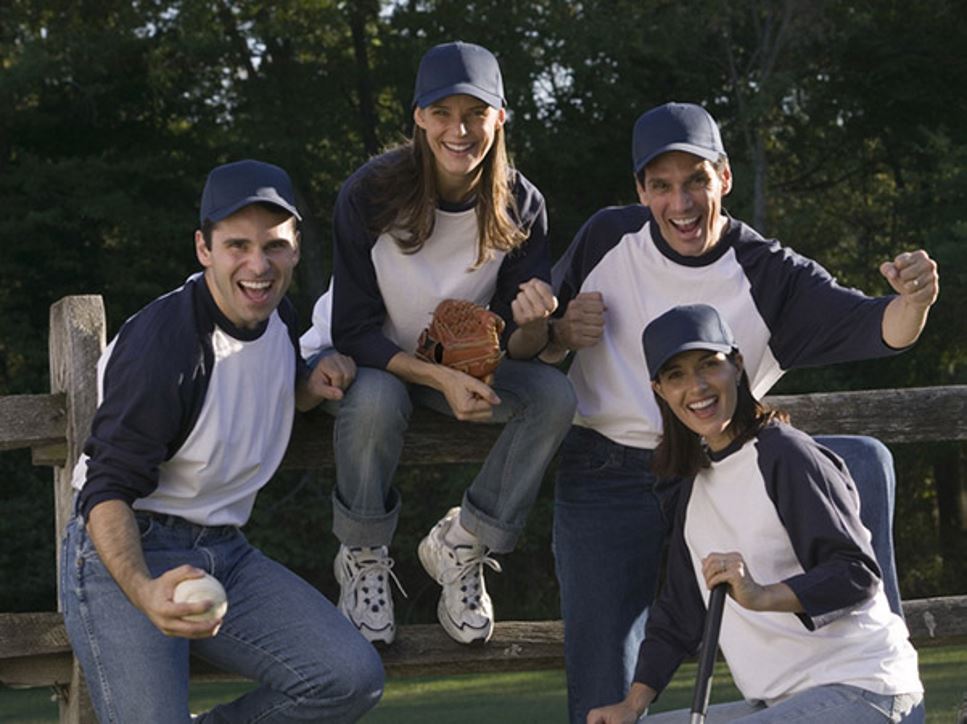You are just a forkful and water bottle away from boosting your baseball performance! Smart food choices and proper hydration can enhance reaction time, focus and stamina to give a competitive edge on the field. Although baseball is not a sport of continuous activity, the games are long. A smart nutrition plan can help you mentally and physically stay in the game. Here's a game plan on how to eat for energy and hydrate for high performance.
Pre-Game Meals
Three to four hours before the game, eat a balanced meal. A good rule of thumb is to have one-fourth of the plate filled with whole grains such as whole-grain bread, pasta or brown rice; one-fourth of the plate consisting of lean protein such as eggs, fish, beans or chicken; and the last half of the plate featuring colorful produce. High-fat meals, such as fried chicken or a cheeseburger and fries, can lead to feeling weighed down and sluggish. Some good examples of pre-game meals include:
- Whole-grain toast with a vegetable omelet and chopped fresh fruit
- Oatmeal (made with low-fat milk) with almonds and a banana
- A grilled barbecue chicken sandwich on a whole-grain bun served with a spinach salad
Then, between 30 minutes to one hour before the game, eat a piece of fruit such as a banana, apple, orange or grapes.
Drink Plenty of Fluids
Water may be the most important nutrient for baseball players. Not staying properly hydrated can lead to muscle cramps, joint pain, fatigue, headaches, slow reaction time and decreased concentration. These are general guidelines to help you get started, so adjust for any personal needs:
- 2 hours before the game, drink at least 16 ounces of water.
- 15 minutes before the game, have another 8 ounces of water.
Once the game starts, stay well-hydrated by drinking about 4 to 8 ounces of fluids every 15 minutes. Don't rely on thirst to alert you to when you should drink more — when you feel thirsty, dehydration is already setting in. Instead, use sports bottles with ounces clearly marked to keep the right hydration pace through the game. Start with water, but then — after about 1 hour of playing and sweating — switch to a sports drink. Sports drinks provide electrolytes such as sodium that are lost in sweat, as well as carbohydrates. These can help replenish muscle energy.
Pitchers and catchers will typically need to drink more fluids than other position players since catchers wear heavy equipment and pitchers are in continuous movement.
Post-Game Recovery Plan
Within roughly 30 minutes after the game, eat a snack containing protein and carbohydrate. This combination will help repair muscles and replenish energy stores. Some good post-game snacks include half of a peanut butter sandwich on whole-grain bread; low-fat chocolate milk; a smoothie with low-fat milk or yogurt and frozen fruit; and string cheese and an apple.
Don't forget about post-game fluids. To see how much you need, weigh yourself before and after games. For every pound of weight lost, drink 16 to 24 ounces of water. Losing weight after a game is not a good thing since this is a sign of dehydration. Make it a priority to increase the amount of fluids consumed during future games.
See a registered dietitian nutritionist for more sports performance questions.
References
Find a Nutrition Expert
Looking for credible nutrition information and recommendations? The Academy of Nutrition and Dietetics' network of credentialed food and nutrition practitioners are ready to help!

